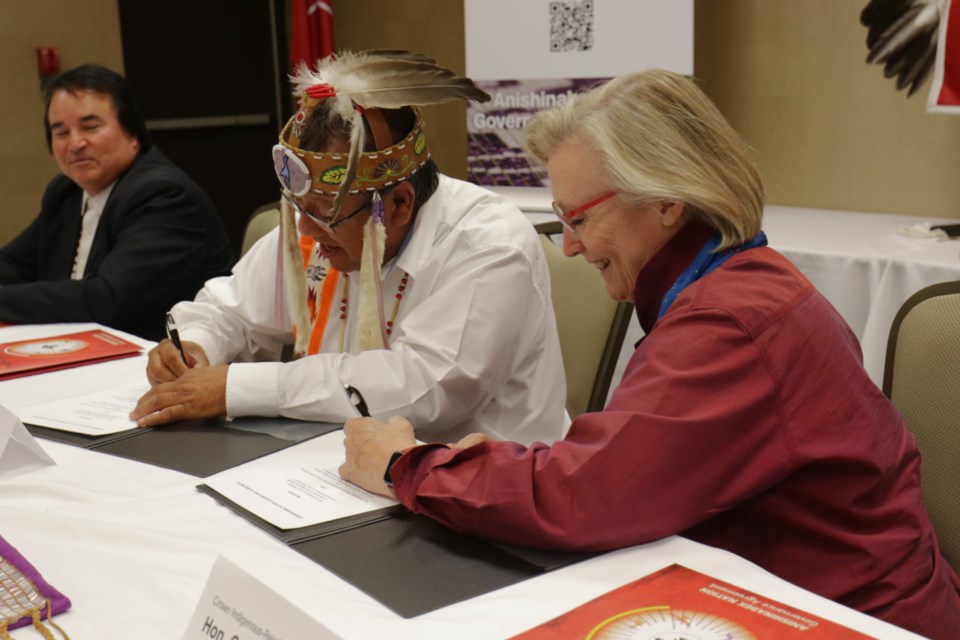The Anishinabek Nation Governance Agreement (ANGA) has been rejected by Mississauga First Nation membership following a ratification vote that took place throughout the month of February.
According to unofficial voting results released by Mississauga First Nation via social media, 135 votes were cast, with 55 voting ‘yes,’ and 80 voting ‘no.’
The vote failed to meet the ANGA ratification threshold, which is a minimum of 25 per cent plus one of a First Nation’s eligible voters.
According to unofficial voting results, there was a total of 1,110 eligible voters - meaning that just 12 per cent of eligible voters participated in the ratification vote.
Earlier today, BayToday reported that Nipissing First Nation didn’t meet the required voter turnout, failing to ratify the governance agreement.
The Union of Ontario Indians (UOI) - which acts as a political secretariat for 39 First Nations in Ontario - tells SooToday that involved parties will have to make statements on its unofficial voting results before it can comment.
A total of 14 First Nations voted on the governance agreement in February, with another round of ratification votes involving nine-member First Nations slated for March.
The Anishinabek Nation and UOI say its governance act is an agreement between Canada and the Anishinabek Nation that would allow First Nations that ratify the governance agreement to pass their own laws surrounding elections, citizenship, language, culture and financial administration.
Sagamok Anishnawbek First Nation quietly severed its ties with the Anishinabek Nation - due in part to the governance agreement - in the fall of 2019.
“While UOI's original function was to act as a body for political advocacy, it eventually became another layer of bureaucracy that syphons off funding it gets to First Nations,” reads a community notice posted to the First Nation’s website back in November. “More concerning is that the UOI also became the financial enforcer for the funders themselves, placing restrictions on the ways their member communities could spend allocated funds, despite the First Nation authority over governance.”
Dr. Hayden King, executive director for Yellowhead Institute, has also been critical of ANGA publically, prompting rebuttals from ANGA chief negotiator Martin Bayer and fiscal negotiator Jide Afolabi.
Negotiators with UOI and the federal government are scheduled to meet Monday afternoon in order to discuss the unofficial voting results.
UOI tells SooToday that a statement on the unofficial results of the ratification vote is forthcoming.
More information on the governance agreement can be found on the ANGA website.
